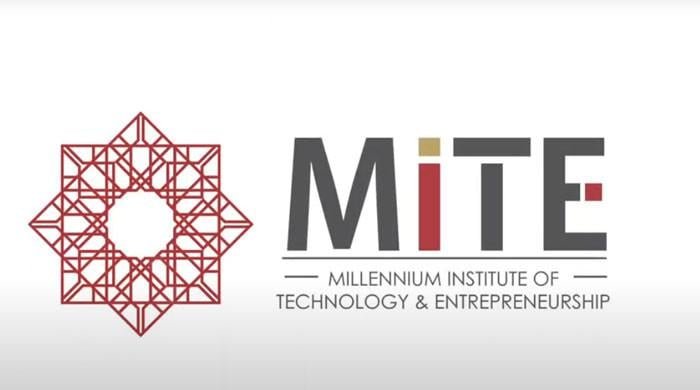Millennium Institute of Technology (MiTE) on Friday organised a mega networking event to lay a launching pad for entrepreneurship, innovation and design, and build strong linkages to connect, collaborate and engage with stakeholders in Karachi.
MiTE president Faisal Mustaq said that as a founding trustee, it is only normal for him to fund and support such a university. “We have been involved in education across Pakistan for the past 36 years,” he said, adding that his mother set up a small school that started with 50 students.
He explained that graduates are now active in all sectors of society, including government, policy making, civil service, legal profession, politics and the judiciary, and that it was only natural for him to have a vision for the university.
Recalling the founding of MiTE, he said they faced the problem of where to start: Islamabad, Lahore or Karachi. He added that his father lived in a village near Umerkot in Sindh. [because of] My Sindhi roots, my connection to my lineage and my family prompted me to set out from Karachi.”
He explained that schools built the knowledge society and universities built the knowledge economy, and he believes that universities can bring about social change by addressing economic, environmental and other societal challenges.
“The university fosters knowledge, human capital, critical thinking, innovation and research to help create a sustainable future for the world,” he said, adding that their ethos as a university is based on technology, entrepreneurship, incubation and design.
He said the institute’s growth was due to Dr Huma Bakai’s personal and professional dedication to the institute and his dynamic leadership.JS Bank CEO Bashir Shamsi quoted Abdul Sattar Edhi as saying that no religion is higher than humanity and no wealth is superior to education.
He spoke on “Bridging the Gap: Embracing an Inclusive University-Industry Collaboration Pathway.” He said the educational responsibility is crucial. From an entrepreneurial perspective, he said, two and a half years ago, the team members decided to collaborate with universities on a more active engagement than the usual scholarships and events. “We wanted to encourage entrepreneurship,” he said.
Last year, the company received 4,000 applications from startups, he said. “They were indeed startups, many of them with limited revenue.” Judging committees were set up in different cities to evaluate the applications, which resulted in three winning applicants.
He encouraged industry leaders to give young people time to return to college a few years after they leave school. Young people will relate better to university students than those who attended college 30 years ago, he said. Later, he said, UNDP began running programs for the Sustainable Development Goals, especially for the environment.
He said they are facing challenges in recruiting talent for governance, regulatory compliance (GRC). “It’s a high-demand field. The demand overseas and locally is phenomenal,” he said, adding that while a traditional MBA in finance or marketing would be fine, there are areas like GRC that are in high demand.
Amin Hashwani, a Pakistani entrepreneur and philanthropist, spoke about the need for a collaborative effort. He said if we want to create great institutions, it has to be a collaborative effort. He stressed that collaboration must be between industry, the public sector, civil society and other educational institutions.

